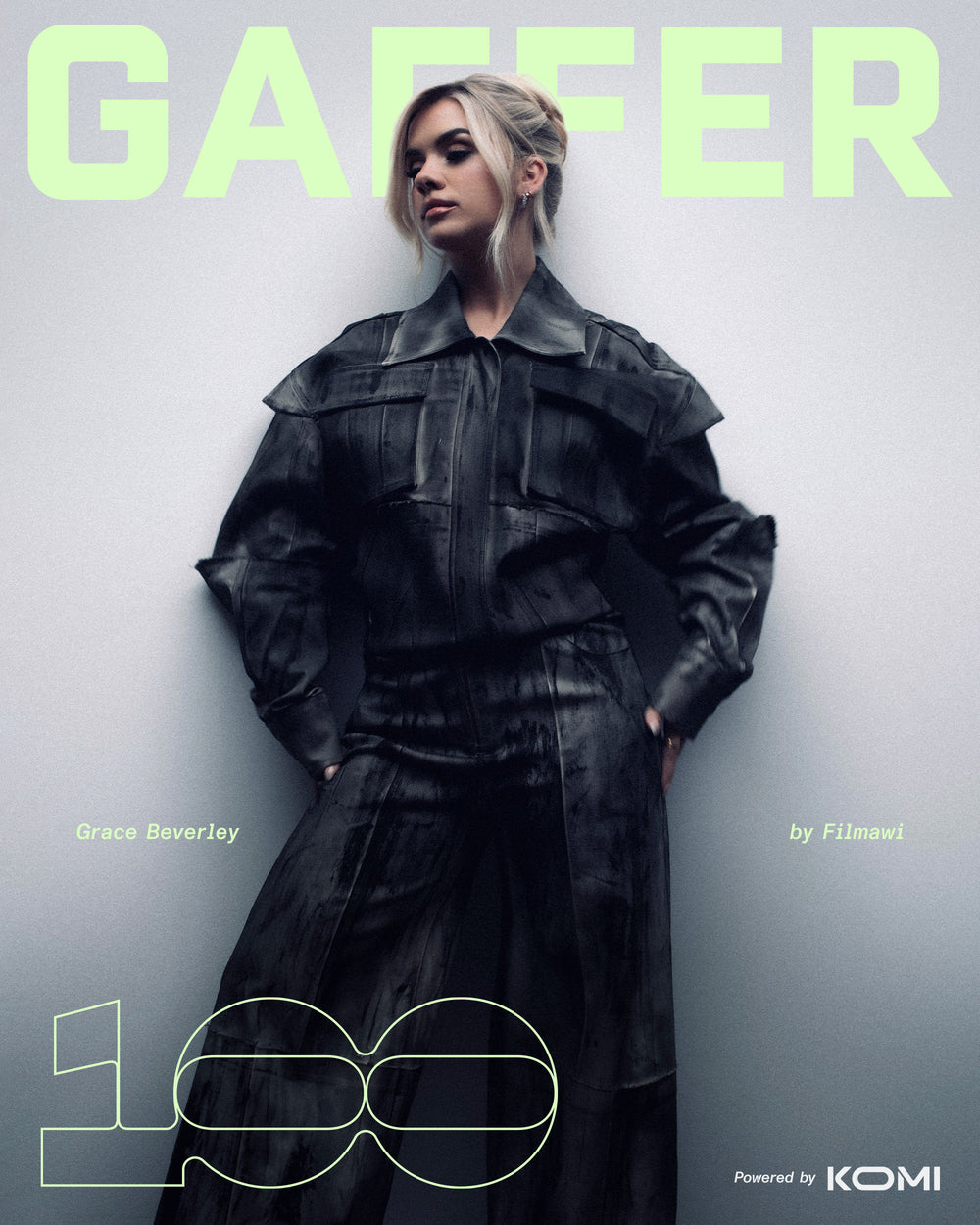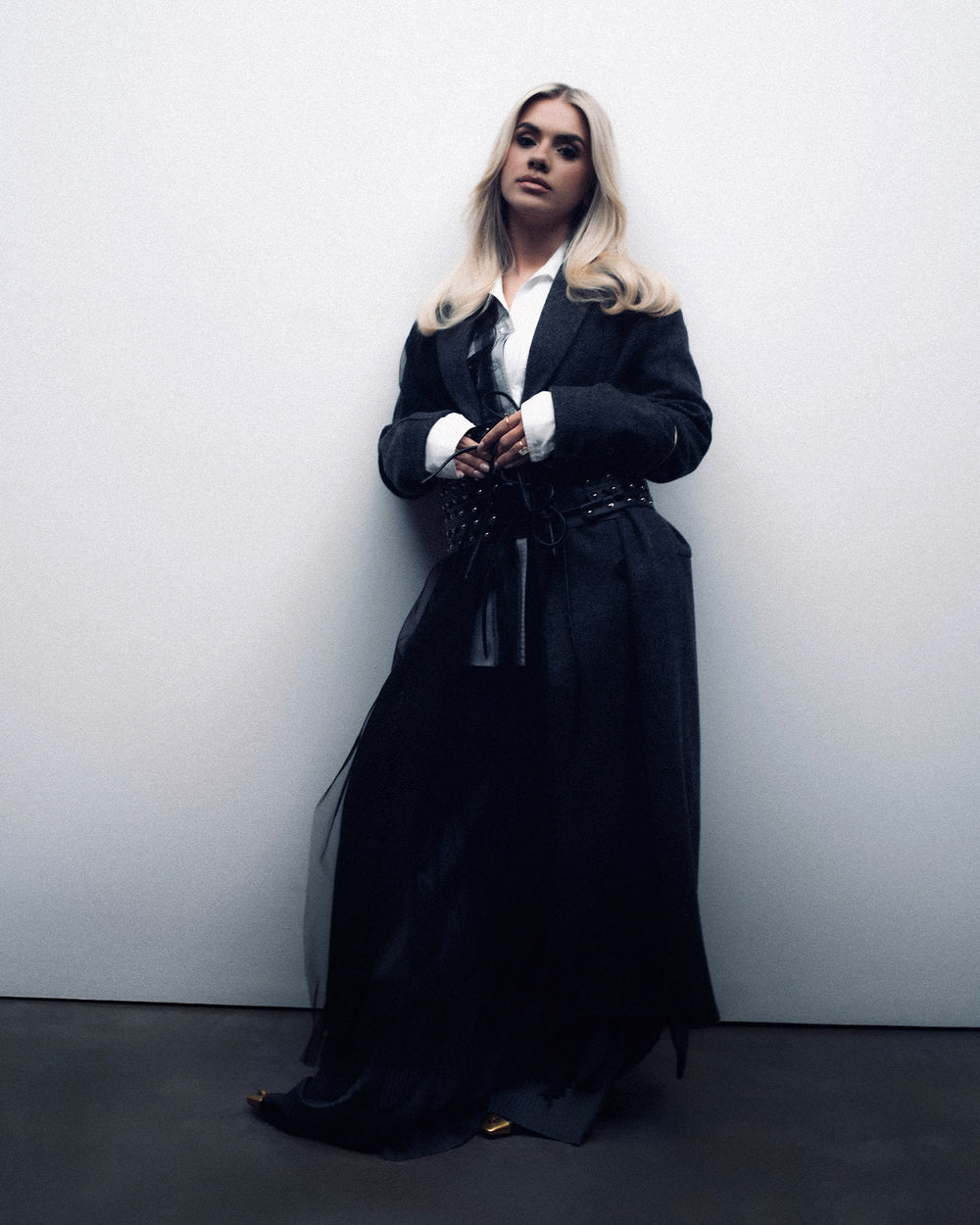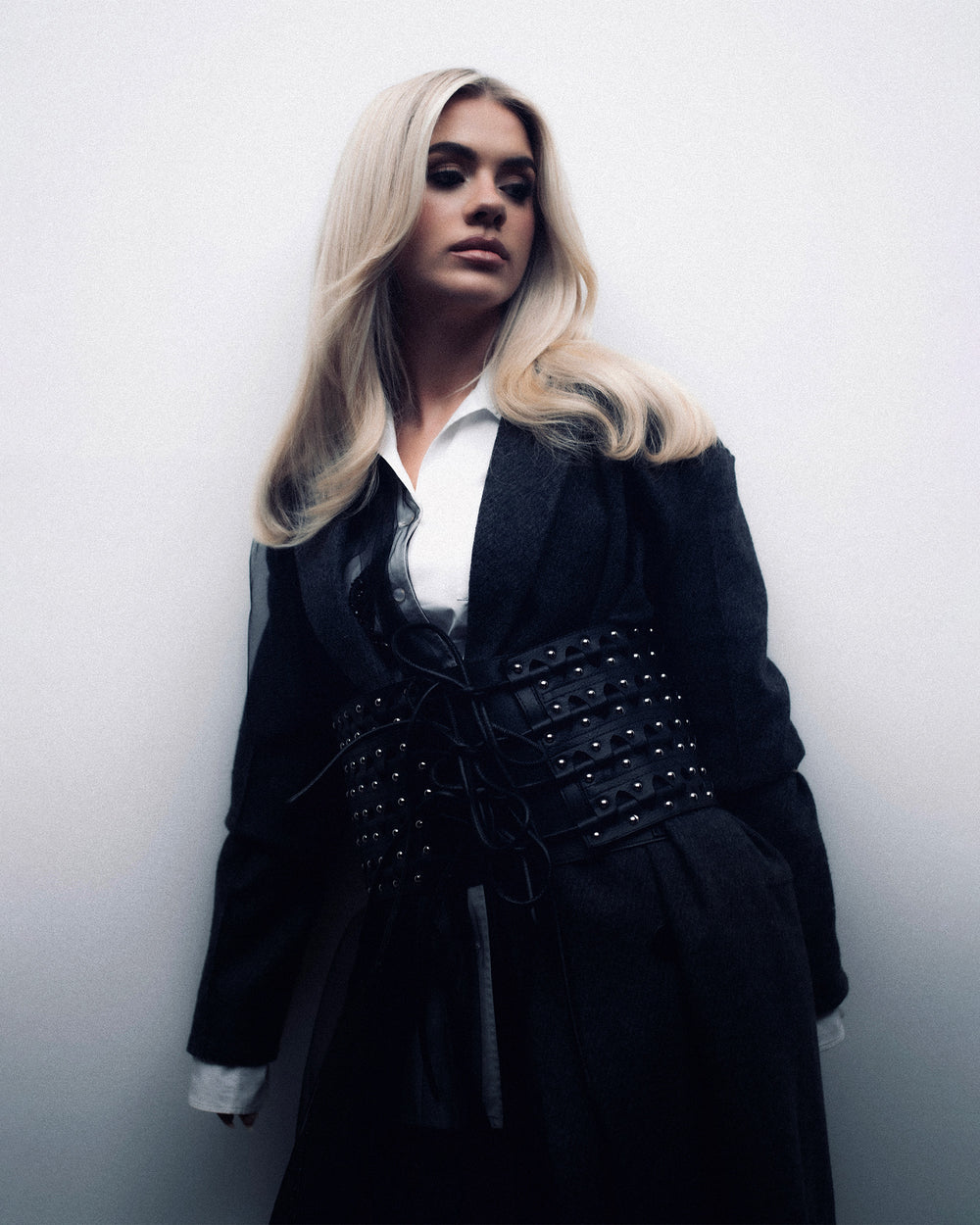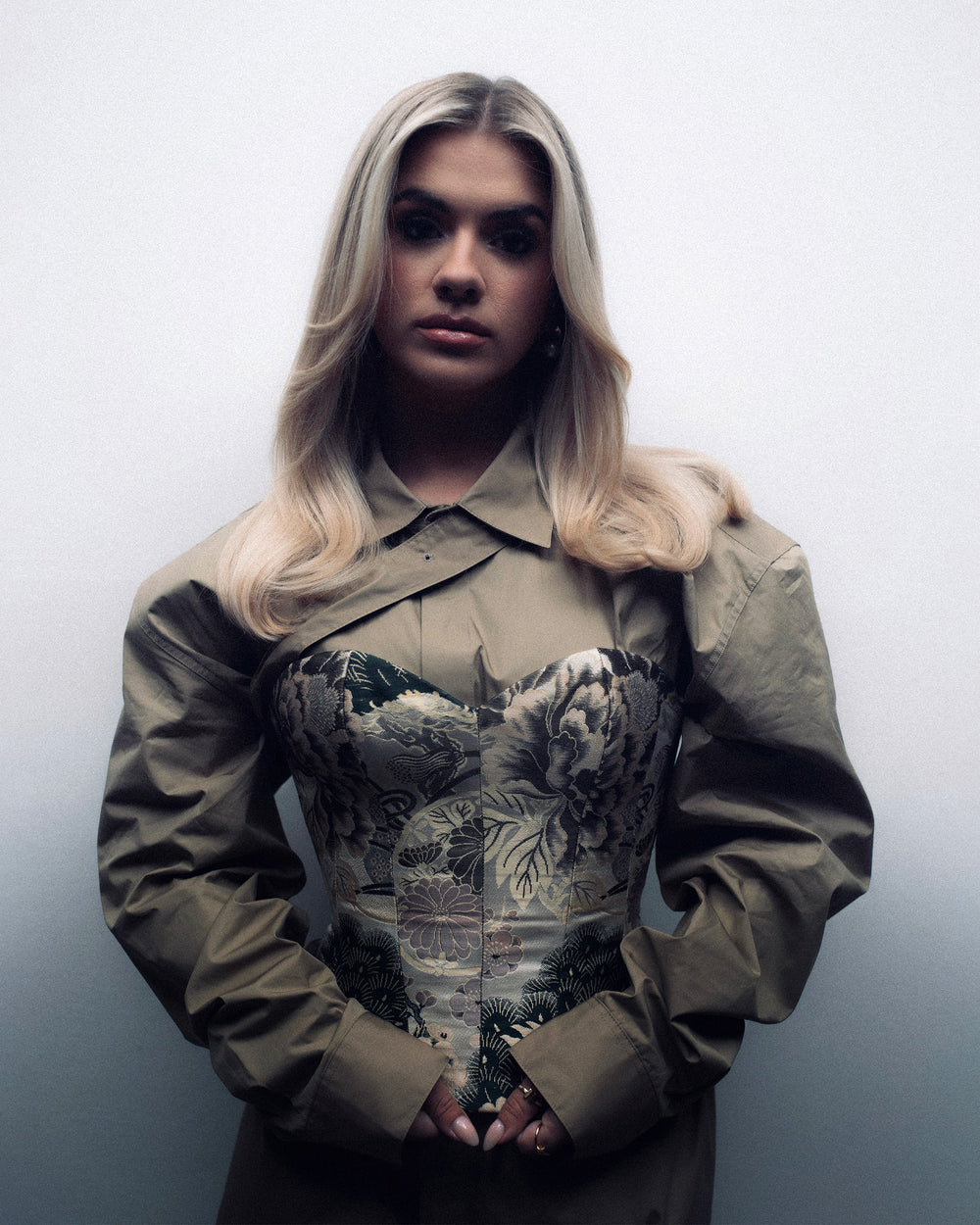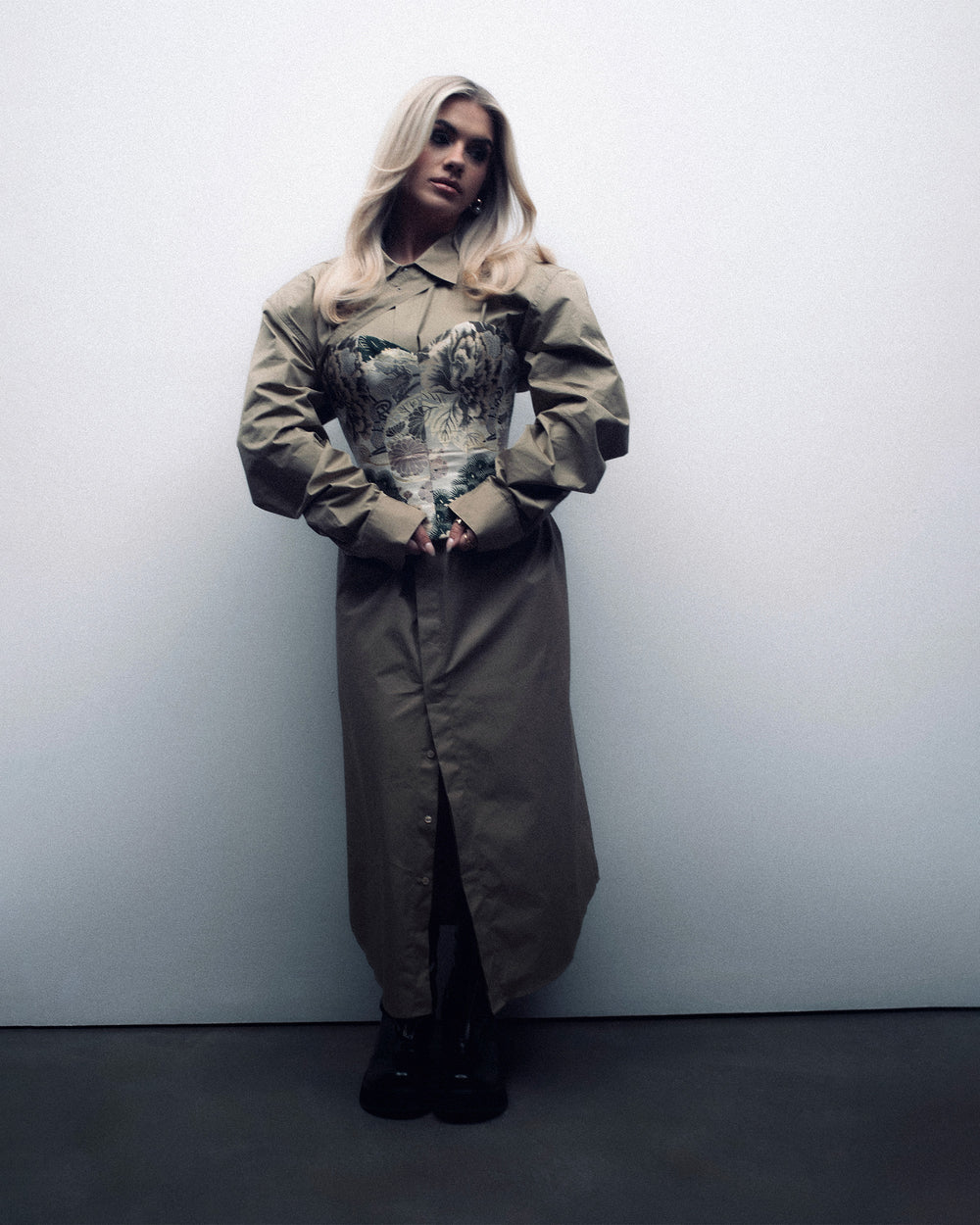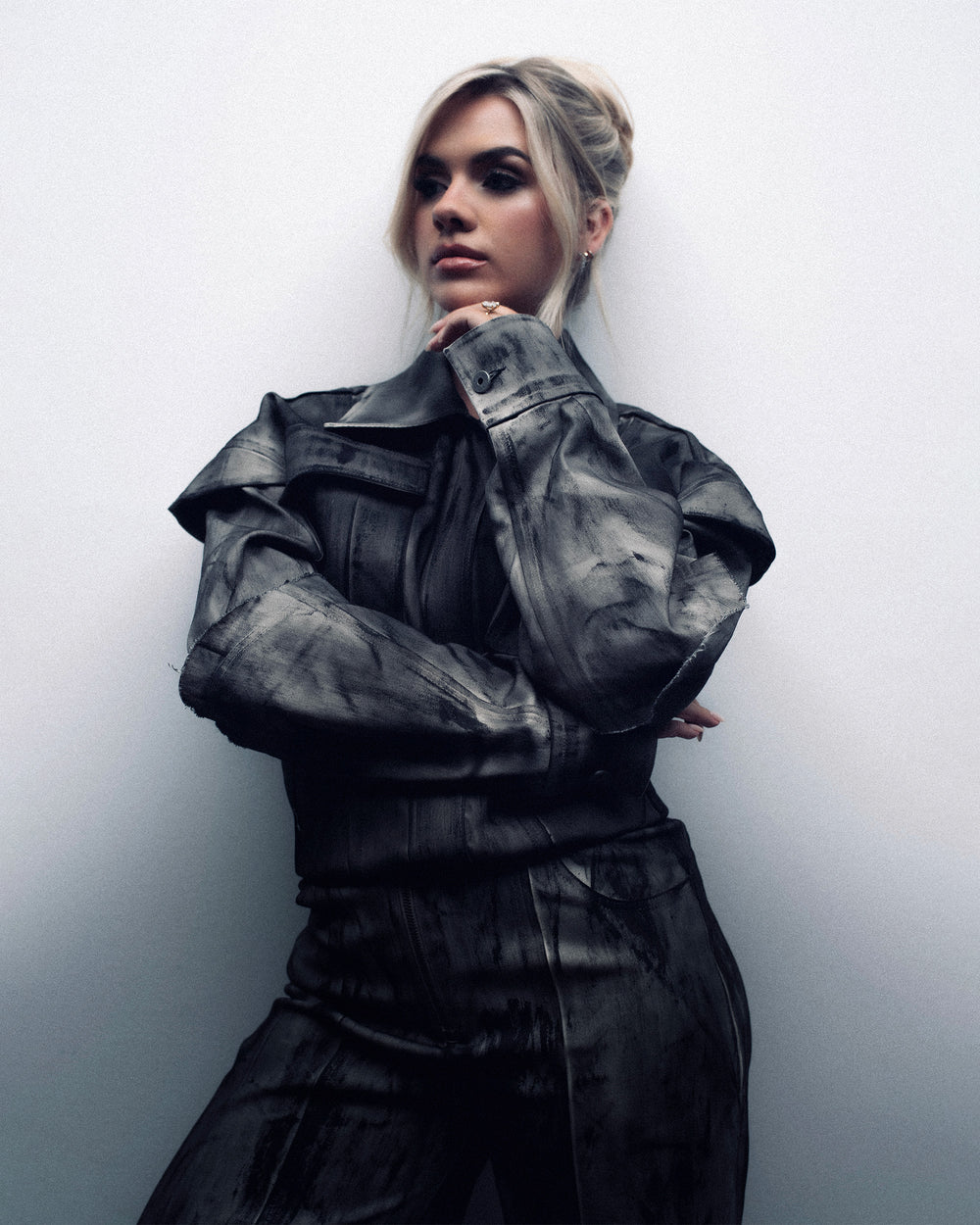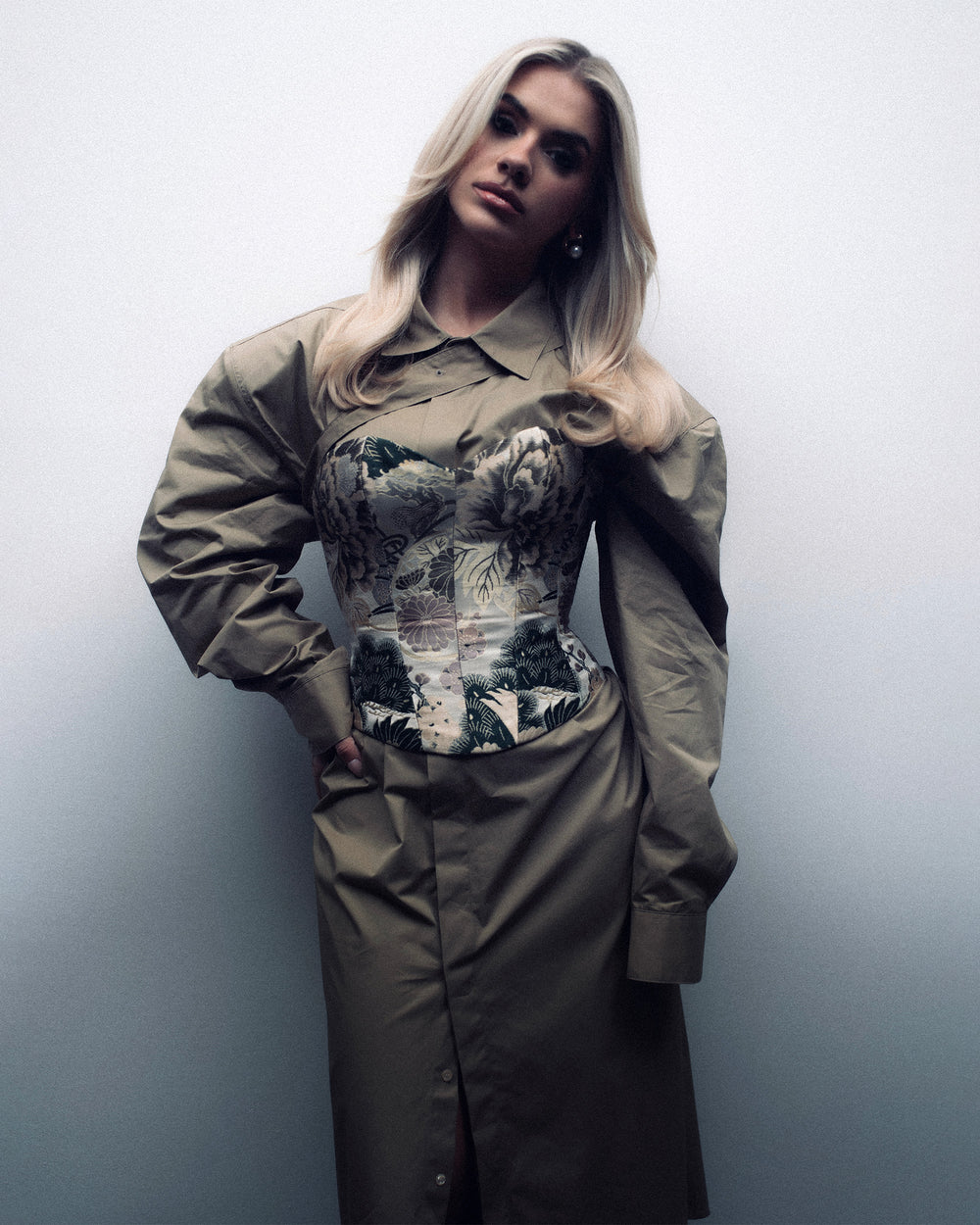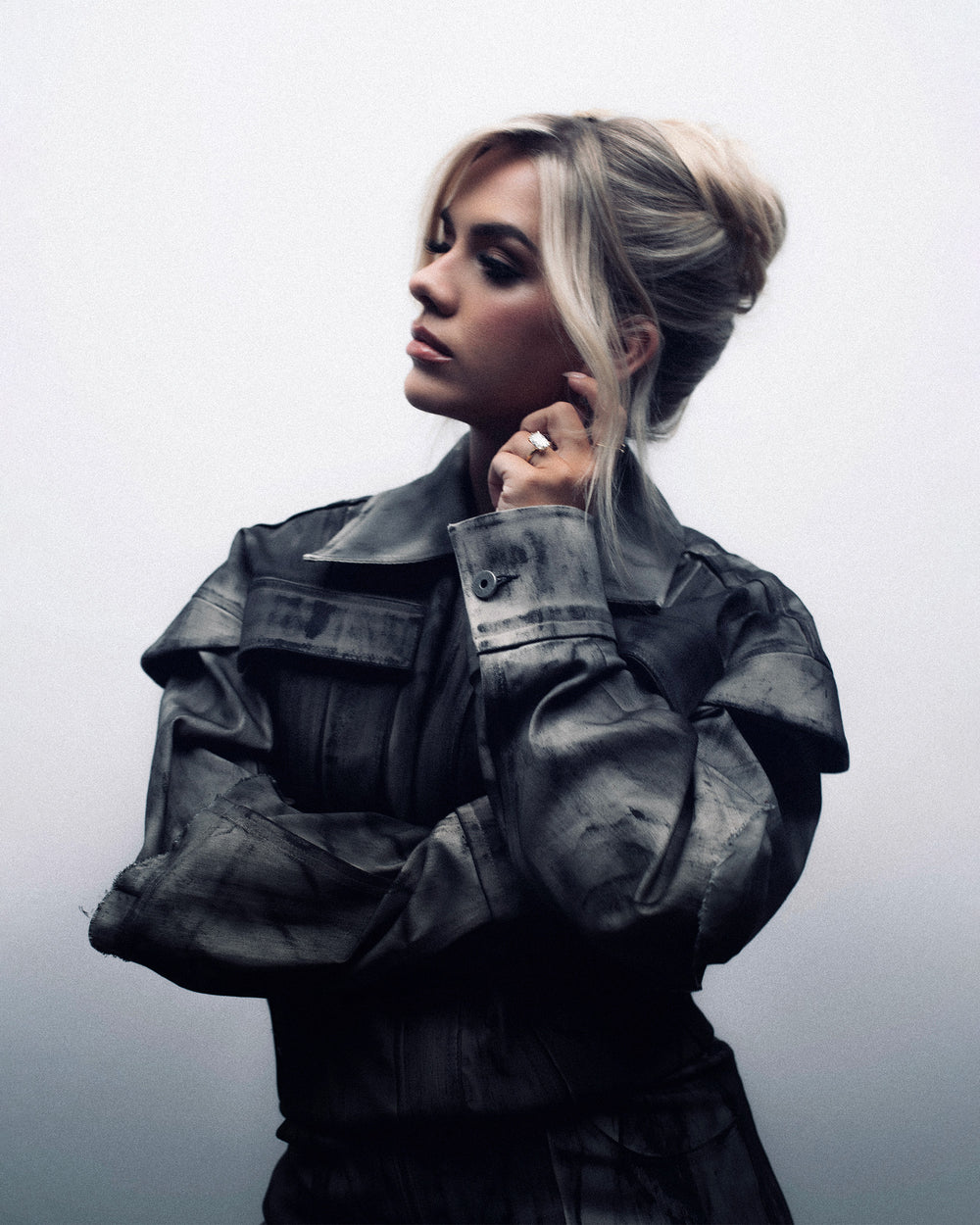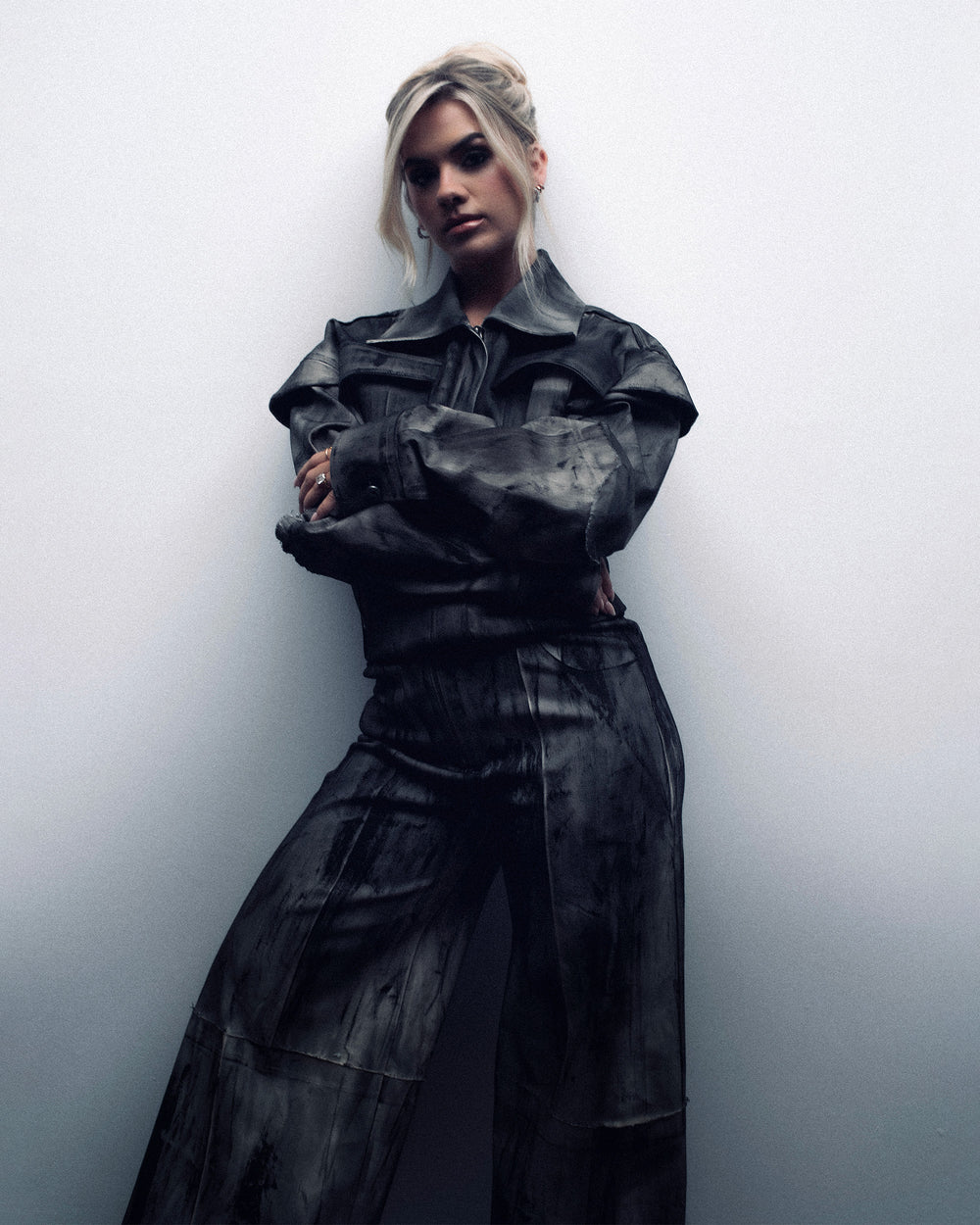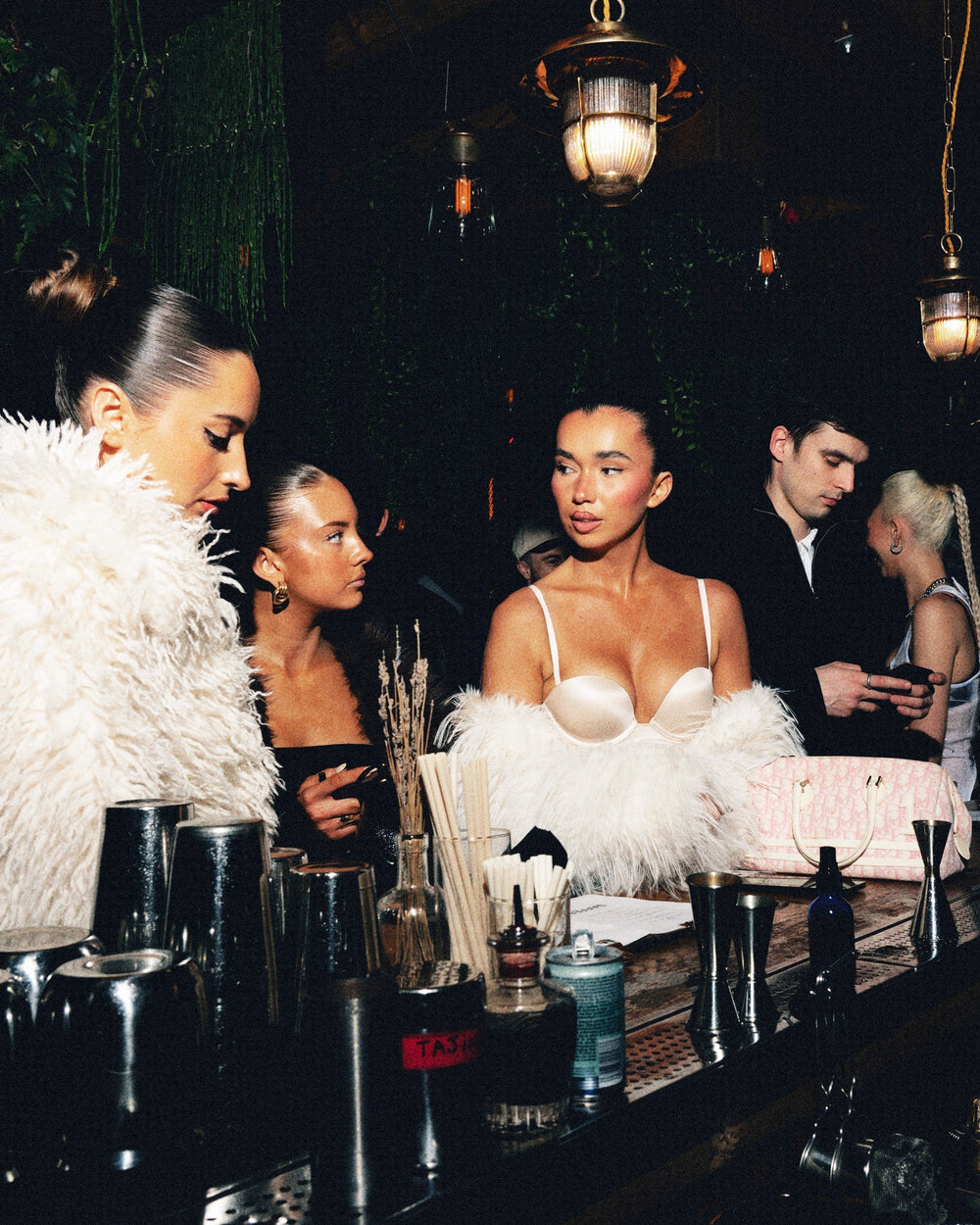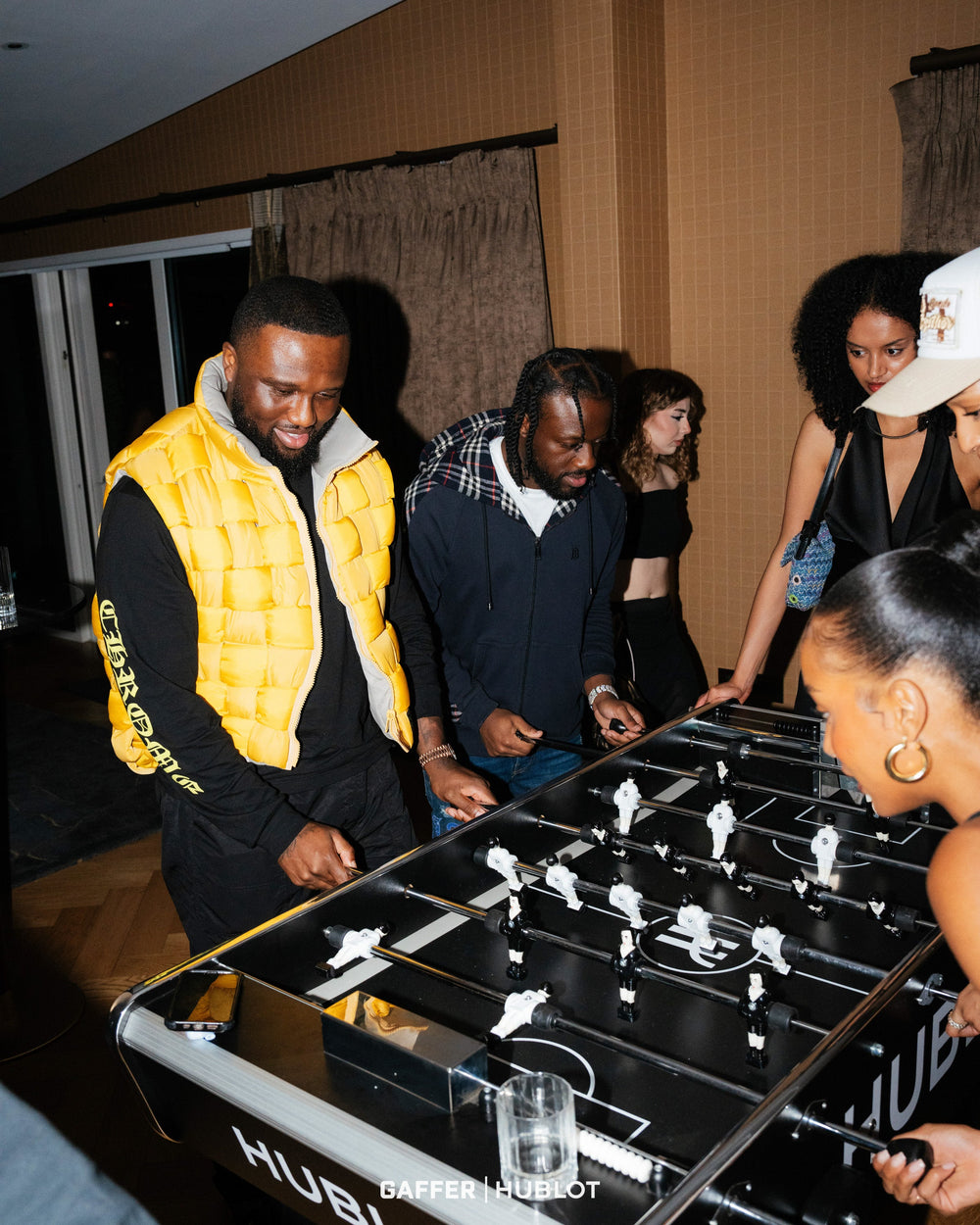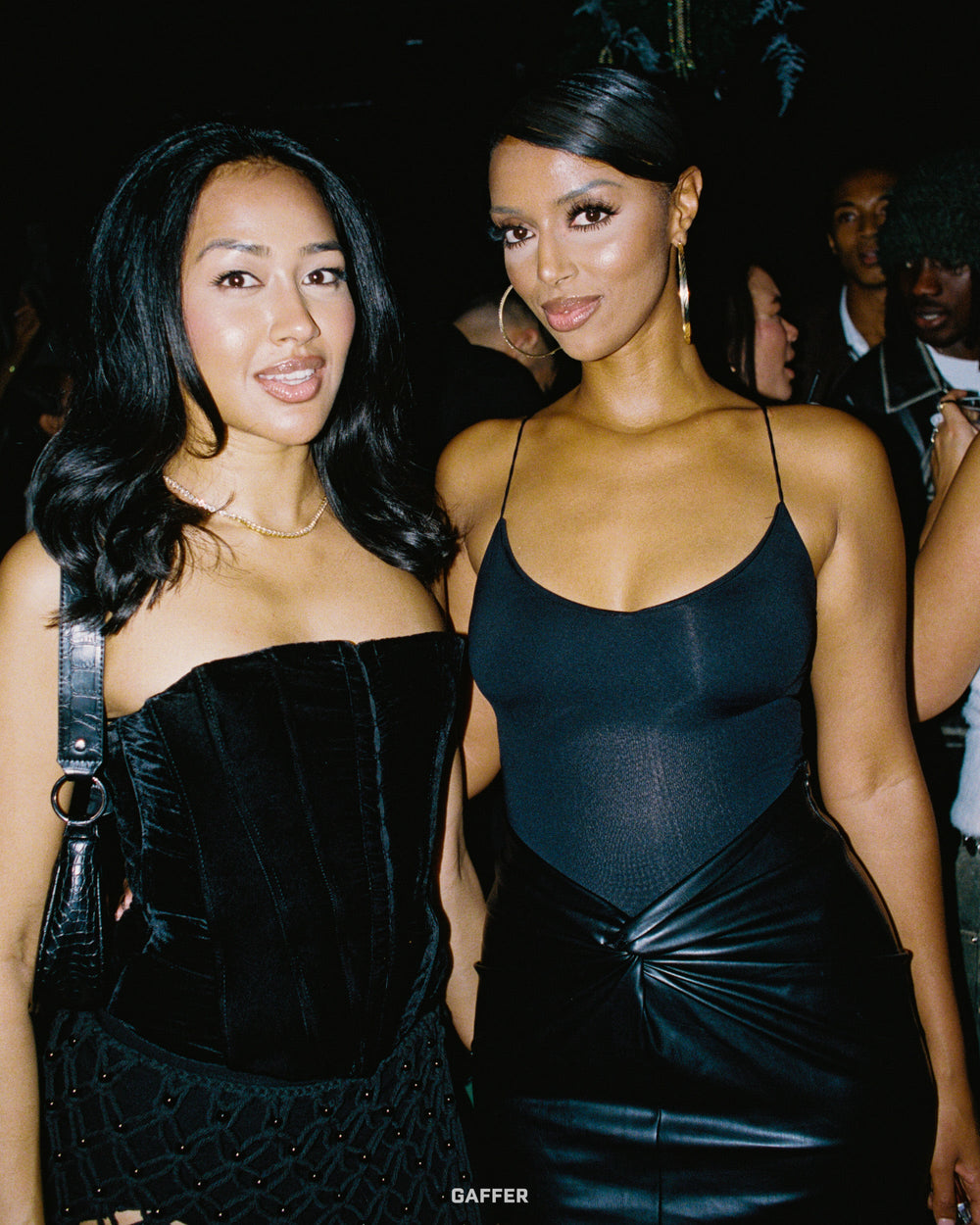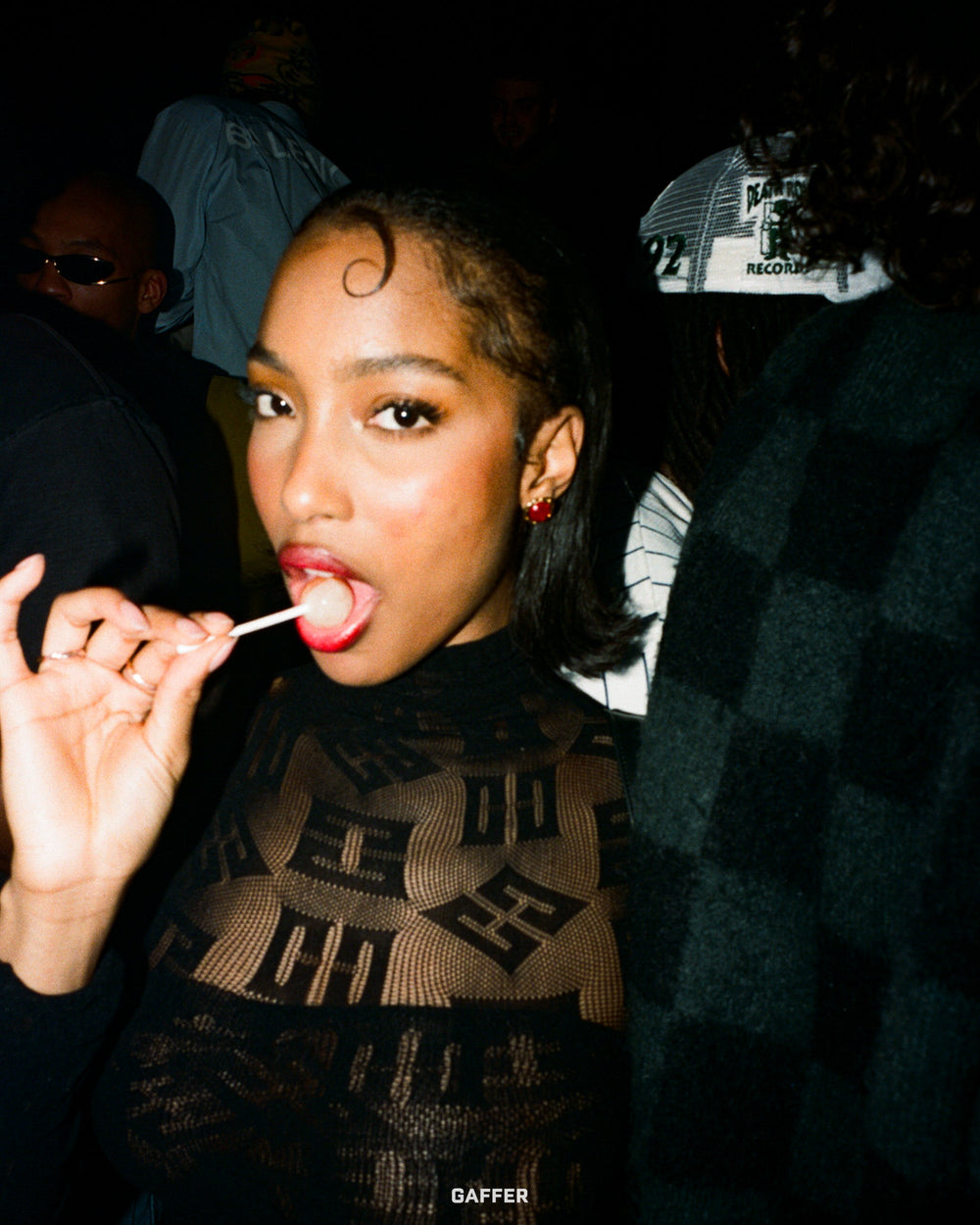Grace Beverley: Reinventing the Wheel
Powered by

PHOTOGRAPHY: FILMAWI / STYLING: Cara Hayward / CREATIVE DIRECTION: CHARLOTTE MAYUMI PHIPPS / WORDS: Amba Mendy
There’s a point in every founder’s story where something breaks. Sometimes it’s the plan, sometimes it’s the person. With Grace Beverley, it was both, and she did it on purpose.
She had built a wildly successful profile while still at university, amassed an audience, started two businesses, and was doing the kind of numbers most people twice her age would quietly envy. But something wasn’t sitting right. She looked at the shape of her work life and made a choice most people wouldn’t.
She deleted every video on YouTube. All of them. “It was just too easy to fall back into it, and I knew it didn’t fulfil me. So I took away the option.”
That kind of self-awareness, and that kind of clarity, cuts through every answer she gives. Grace has learned to build the life she wants by learning when to burn parts of it down.
The transformation from influencer to entrepreneur wasn’t just a rebrand. It was a restructure emotionally, operationally, and strategically. “Back in 2021 I tore Tala apart and rebuilt it from the ground up. We weren’t in a place to become what I knew we could be, so I pulled it to pieces. It nearly killed the business. But it made me a better founder.”
“I think the best decisions I’ve made have come from the most uncomfortable moments. You’ve got to push through that if you want to go further than what you thought was possible.”
That philosophy is rooted in action. When she’s not at the office (which, yes, she built for herself because she wanted the 9-to-5 structure), Grace is almost certainly at her desk. Ice-rolling post-gym, Kindle in one hand, soup in the other. “I carry my Kindle like most people carry their phone. I love books. All of them.”
Work isn’t a means to an end for her. It’s central to who she is. “I really enjoy working. I like problem-solving. I like being in it. I know that’s not for everyone, but I’ve owned that now. It makes me happy.”
It’s why she gets animated talking about campaign work like overturning proposed legislation that would have made it harder for women to access investment. “Women already have enough obstacles in front of them. Seeing this group called Invest Her put everything into that campaign was genuinely inspiring.”
Her own success hasn’t dulled her edge either. There are still pinch-me moments, like Tala’s third Alterwear launch, which hit seven figures in under an hour. Or watching people shop the brand in Selfridges for the first time. “It was surreal. We’ve been so online for five years, so just seeing how people actually interact with the product... that was massive for me.”
The scale is real, but the vision stays human. She’s clear on what the industry still gets wrong. “My biggest piece of advice? For men to take women seriously in the workplace, and for women to stop worrying about it.”
“Imposter syndrome only exists because we don’t see ourselves reflected in the rooms we want to be in. That’s not something we should fix. That’s something the system needs to fix.”
There’s a measured confidence to how she explains things. You get the sense she’s had to answer a lot of the same questions, in a lot of different rooms. But her answers still feel lived-in. Not polished, just personal.
She knows she thrives under pressure. Always has. “I used to think it was a flaw, how I needed stress to perform. But I’ve learned that’s just how I’m wired. The key is knowing when to turn it down.”
Balance, for her, doesn’t look like a neat 50/50 split. “You can have it all, just not all at once. Sometimes life’s going to pull more attention. Sometimes it’s work. Sometimes neither’s in sync. That’s okay. You just have to know what burns you out and work around it.”
“I really want to have a great life. Be around people I love. Enjoy the time I’ve got. I think I care more about how I spend my days than any idea of legacy.”
She’s less obsessed with the big picture and more tuned into the details of daily rhythm. Her playlist for getting in the zone is called You’re Good. It’s chaotic. Chick flick soundtracks, Georgia Smith, ABBA, Avril Lavigne at Glastonbury levels of energy. “If it makes me feel good, it goes in. Simple as that.”
And if she wasn’t doing this? “I’d sell pick-and-mix,” she grins. “And I’d crowdsource the name. It wouldn’t do well on SEO, but it’d be fun.”
There’s an edge of satire to how she views her own ambition. It’s clear she takes the work seriously, but not herself. That’s a hard balance to strike, especially when so many eyes are watching.
Which is why, more than anything, she’s careful about the pressure we put on ourselves, especially women, especially online. “We’ve turned balance into another performance. Another goal. Sometimes you’re not going to get it right. And that’s fine. You’re not supposed to.”
“Stop caring what other people think of you. Especially if what makes you different is the same thing that’ll eventually become your strength.”
There it is. The thesis. The takeaway. The quote that sticks. Grace Beverley isn’t trying to be anyone’s blueprint. She’s too busy redesigning the whole system.
